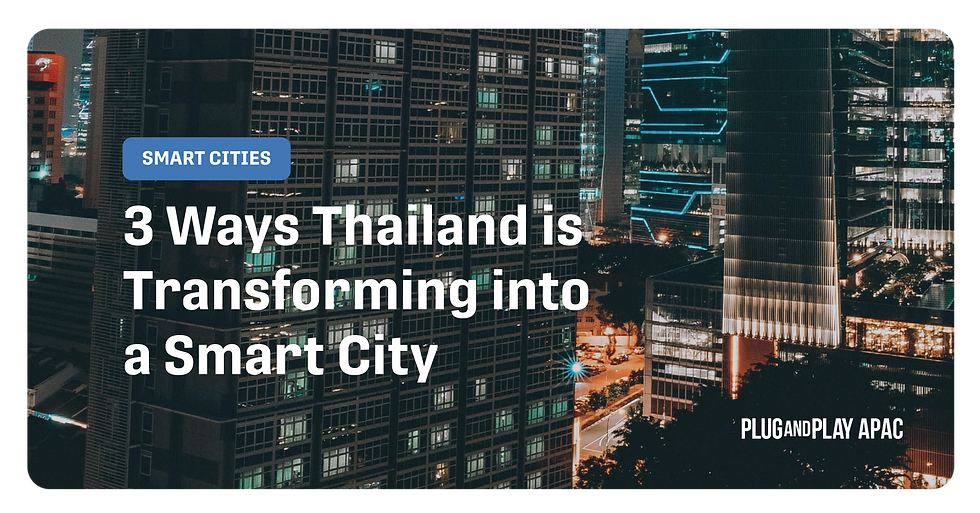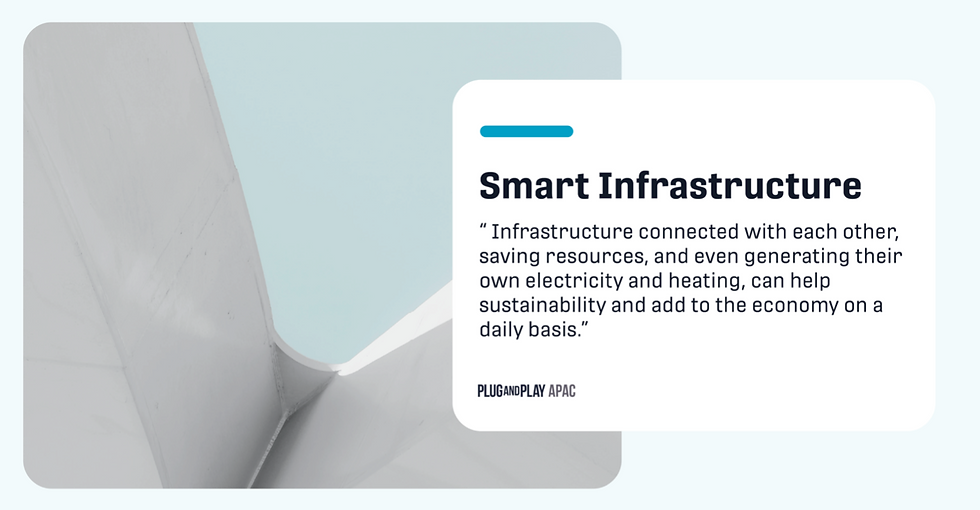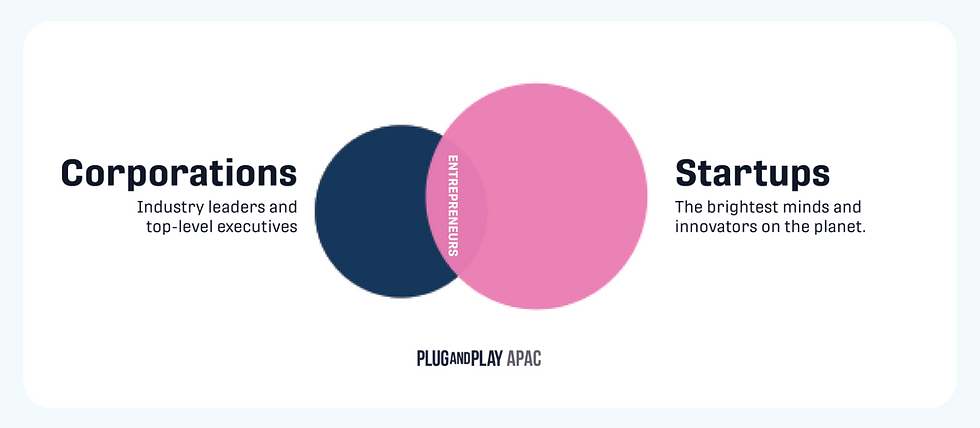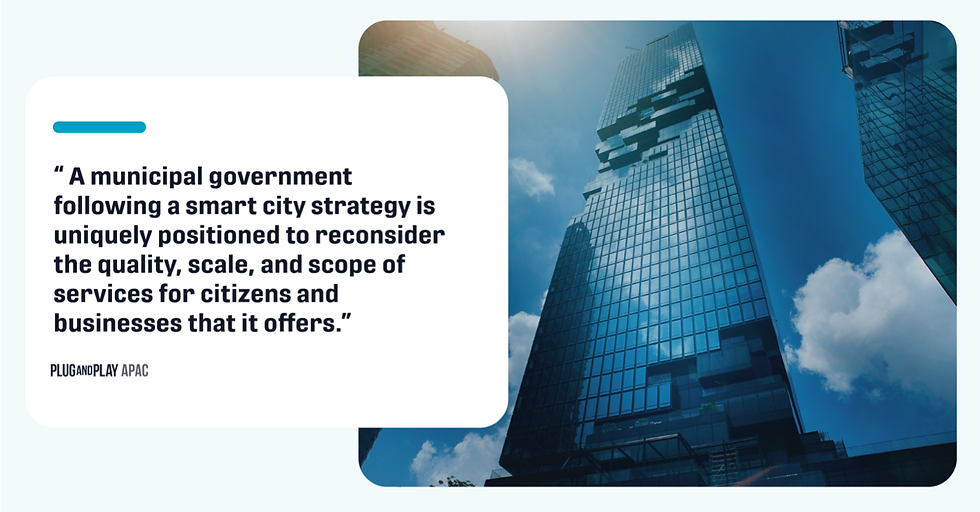
What makes a city smart?
A smart city is a framework, predominantly composed of Information and Communication Technologies (ICT), to develop, deploy, and promote sustainable development practices to address growing urbanization challenges. Smart cities put data and digital technology to work to make better decisions and improve the quality of life.

According to the UN, 62% of the world’s megacities are expected to be in the APAC by 2030. Given rapid technological advancement in the past decade, the region has been a frontier of Smart Cities development with leading countries such as China, Korea, Japan, Hong Kong and Singapore. In Southeast Asia, Thailand has also been laying groundwork to transform its cities to become smarter and more sustainable.
Being the second largest economy in ASEAN with almost 70 million population, Thailand’s rate of urbanization has increased dramatically with half of its total population currently living in cities and urban areas. During the 2019 ASEAN summit, Thailand introduced the Eastern Economic Corridor which seeked to transform three Thai cities into smart cities. This movement had turned out to be a success and hence, in accordance to Thailand 4.0, the government aims to develop 100 smart cities by 2022 with the objectives of building an innovation-driven economy and enhancing the citizens’ standard of living.

The 7 key areas of smart cities development comprise of environment, economy, mobility, energy, people, living and governance. Currently, a total of ten cities in Bangkok, Phuket, Kon Kaen, Chiang Mai, Rayong, Chonburi and Chachoengsao are approved to be at the forefront of smart cities development. With these ambitious goals, here are 3 ways of how Thailand will materialize its transformation into smart cities.
1. Invest in Smart Infrastructure

Thailand is the first country in ASEAN which has launched 5G commercial services in 2020. The adoption of 5G services rolled out by leading telecom operators is prominent in hospitals during COVID-19 outbreak as hospitals offer telemedicine services and robots to avoid direct contact between doctors and patients. The 5G rollout will further accelerate the adoption of IoT solutions enabling more use cases in various industries. According to a survey by Asia IoT Business Platform, Thailand is ranked highest among all ASEAN countries for IoT implementation with the IoT market forecasted to grow to US$2.19 billion by 2030.
Another gigantic project of Smart Cities development plan is the Eastern Economic Corridor (EEC) in the eastern seaboard, an industrial economic zone covering three provinces. Along with support from the government, notable corporates such as C.P. Group and PTT are leading the way to develop key infrastructures including high-speed rail that connects three airports, and an innovation hub that acts as the center of research, technological development and regulatory sandbox focusing on key industries comprising of industry 4.0, battery and modern transports, medical devices, biorefinery, agriculture and aviation.
2. Collaboration between corporates and startups

Leveraging technology and innovation is key to expedite the development of cities to be smarter and more sustainable. This is where startups play a vital role in shaping smart cities. The collaboration between corporates and startups brings reality to smart cities solution implementation as corporates can offer local industry know-how and distribution channels while startups bring in disruptive technology with on-the-ground execution. At Plug and Play, we aspire to be a catalyst in advancing the development of smart cities through corporate-startup partnerships. Our Smart Cities program in Thailand works extensively with startups and corporate partners to bring forth digitization and innovation across industries, specifically in energy and sustainability, real estate and construction, mobility, IoT and healthcare. Some case studies from startups in our Thailand Smart Cities batches are as follows;
Ecoworth, a waste-to-worth cleantech from Singapore with applications in industrial wastewater treatment, brought their solution to commercialization with Thai Oil, our partner in the oil & gas industry. The business unit team's focus was to reduce the contaminated water inside the water quality measurement in a water treatment facility. Through the use of Ecoworth’s Carbon Fibre Aerogel (CFA), the field test result turned out to be beyond expectation. Today, Thai Oil proceeds to commercially use the CFA in this application and nearby units.
Perceptra, a leading AI-healthtech startup in Thailand, provides instant preliminary radiology reports on chest x-ray images to assist physicians in their diagnosis. The product is developed in collaboration with medical schools and its AI model is trained with the largest X-ray image repository in Thailand. Perceptra is working with Bangkok Dusit Medical Services (BDMS), the largest hospital group in Thailand with 49 hospitals across APAC region, to bring its innovation to commercialization.
3. A supportive government

The government has been playing a fundamental role in directing strategic development focuses. These include various projects specifically designed to support transformation in digital infrastructure, talent development and investment attraction. Some examples of benefits are corporate income tax exemption of up to 8 years, imported machinery tax exemption, smart visa for foreign talents and human resource address two out of seven development aspects, with environment being one of them.
It is undeniable that change brings about many challenges and the key to success lies in collaboration among all stakeholders. Through our Smart Cities program, Plug and Play as an open innovation platform aims to bring together key players to successfully drive Thailand into the ASEAN hub of smart cities innovation and invest in disruptive technologies and innovative startups whilst doing so.
References:
https://asia.nikkei.com/Spotlight/5G-networks/Thailand-leads-ASEAN-in-5G-rollout-due-to-pandemic
https://www.bangkokpost.com/business/1914112/internet-of-things-in-the-thai-market
https://www.bangkokpost.com/business/1961619/clearing-the-air
https://theaseanpost.com/article/developing-thailands-smart-cities
ARTICLE WRITTEN BY: WORAWEEN LUENGLERTKUL Woraween Luenglertkul is a Venture Associate for Plug and Play Thailand.
To know more about our Smart Cities program in Thailand, click here.
As an in-house venture capital, our goal is to fund the teams that are building the defensible businesses of the future. By leveraging our capital, our network of VCs, and our corporate partners, we give our portfolio companies an added advantage. Find out more here!
Interested in joining our programs, click here.



